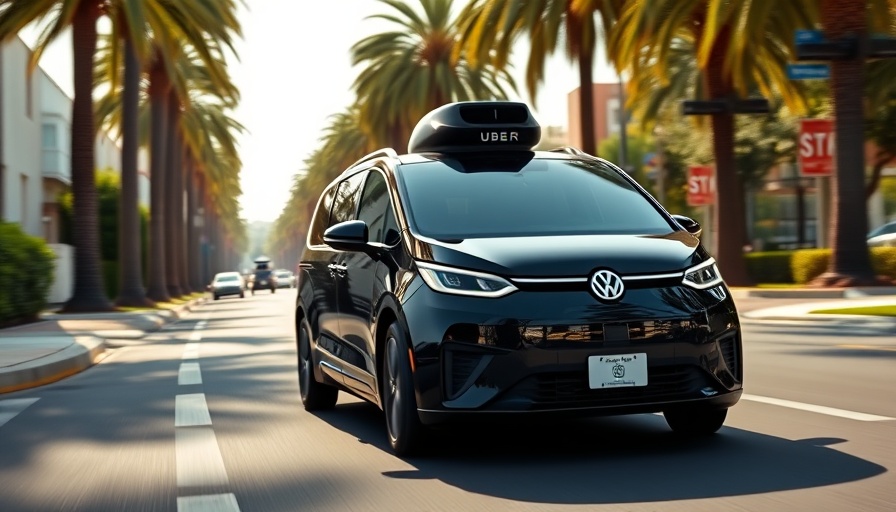
Hollywood’s Missed Opportunity: The Power of Positive Clean Energy Representation
The entertainment industry profoundly shapes public perceptions, yet the representation of clean energy in Hollywood remains alarmingly scant. Despite California being a leader in solar energy and electric vehicles (EVs), most mainstream media hardly acknowledges this pivotal aspect of modern life. Why aren’t clean energy initiatives making it onto our screens when they are very much a part of societal progression?
Why Clean Energy Narratives Matter
In the aptly titled video, "Does Hollywood Hate Clean Energy? | Plugged In," content creator Kristina explores the entertainment industry's baffling neglect of clean energy representation, arguing that the misrepresentation influences public opinion. Indeed, when clean energy is shown, it often appears in a dim light—either overlooked or outright ridiculed. This reflects a broader trend where audiences fail to witness the impact of renewable energy solutions, such as electric vehicles and solar installations, in their favorite narratives.
The Dangers of Misrepresentation
Recent portrayals have even led viewers to question their choices around clean energy options. For instance, in the Netflix film "Leave the World Behind," when a critical power failure occurs, the emphasis suggests EV owners face dire consequences, effectively discouraging potential EV adopters. This misrepresentation, alongside shows like "Landman," perpetuates negative stereotypes about clean energy, leading viewers to question the viability of these technologies altogether.
Success Stories: How Media Can Inspire Change
Interestingly, history shows that influential media can encourage positive societal changes. For example, the early '90s designated driver campaign launched through popular shows like "Cheers" greatly reduced alcohol-related traffic accidents. If Hollywood can push for responsibility on drinking, why can’t it also normalize the adoption of clean energy?
Rethinking The Narrative: Potential for Subtle Influence
While it’s unrealistic to expect every movie or TV show to have an environmental message, subtle inclusions—like characters driving EVs or living in homes equipped with solar panels—can create a supportive dialogue around sustainability. Small yet impactful changes in how filmmakers portray clean energy could shift societal perspective and behavior. Imagine iconic characters in classic homes showcasing solar panels or electric cars in their driveways—this could inspire their audiences to prioritize clean energy choices as well.
Creating a Sustainable Image: A Collective Responsibility
Matthew Schneider-Mayerson’s research supporting positive environmental narratives points towards a burgeoning public interest in climate stories. Whether detailed through comedy, satire, or adventure, clean energy themes resonate strongly. It's an open door for writers and directors to be more conscientious about their environmental storytelling. Similar to how fashion trends can ignite youth culture, media can effectively advocate for sustainability.
In conclusion, while the discussion sparked by "Does Hollywood Hate Clean Energy?" raises valid concerns, it also opens the floor for change. By integrating clean energy into entertainment narratives, Hollywood can not only align itself with the progressive values of its audience but also contribute to public sustainability efforts. Encouraging our favorite characters to adopt cleaner lifestyles can tremendously expand the narrative around renewable energy and inspire the next generation to embrace sustainability. Let’s advocate for media to mirror the bright and hopeful vision of a clean energy future.
 Add Row
Add Row  Add
Add 




Write A Comment